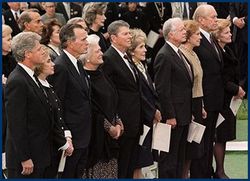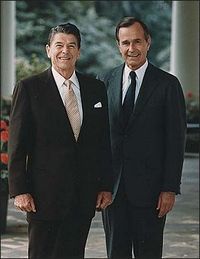
The resignation of House Speaker John Boehner represents the death of Nixonism.
Nixonism was, in retrospect, one of the most important political movements of the American 20th century. It was as important, and long-lasting, as Rooseveltism, which began with Theodore Roosevelt but didn’t really die until decades after FDR’s death, when his party sought new directions through a “liberal” south which finally resulted, after fits-and-starts, in the election of Bill Clinton, whose political legacy was to be an anti-thesis to Nixonism, to lean against it, yeah-but it, adapt to it, and put something of a liberal gloss on it.
The effort failed, as all anti-thesis efforts fail in America. Grover Cleveland, the Democratic anti-thesis to Civil War Republicanism, failed. So did Woodrow Wilson, and Dwight Eisenhower. So, eventually, did Clinton. All were succeeded by men who represented an “excess” of the old Thesis, extending it beyond all reason, making the knees jerk until the assumptions broke down under the weight of new history and required wholesale replacement.

Barry Goldwater could not have existed without this early form of Nixonism. His revolt against anti-thesis Republicanism, the Republicanism of Willkie, Dewey, Nelson Rockefeller, and ultimately of Dwight Eisenhower himself, became a path Nixon could follow to the Presidency. This led directly to the Southern Strategy, the alliance with George Wallace’s voters, and the adaptation of Wallaceism, populism tinged with the racist impulses of a century, into the heart of the Republican message.
The final tent pole in all this was monetarism, the manipulation of money supply advocated by Chicago School economists like Milton Friedman, a system of economic royalism that took control away from the Congress and gave it to bureaucrats, unelected Federal Reserve commissioners. Paul Volcker used monetarism to drive out the 1970s inflation and Nixonism, in the person of Ronald Reagan, emerged in full flower.

George Bush the elder and George Bush the younger were, in the end, mere followers in this political tradition. They had no real political philosophy of their own. The elder Bush could have easily followed Rockefeller, he even started out as a mainstream, liberal Republican, supportive of a woman’s rights and not blind to racism. He made a deal with the devil of Nixon for power. He let Lee Atwater create Willie Horton. He pretended to wash his hands of it.
His son was, admittedly, worse. By the time W was selected by his father’s Supreme Court in 2001, Nixonism had dominated American politics for a generation, since 1968. It had nothing new to say, and George W. Bush said nothing new. He was reflexive, a follower, who handed the keys to Dick Cheney, perhaps the most evil American who has ever held power (all evil is banal, based on fear, and can’t see itself in the mirror). Mark Knopfler wrote a song at the start of his time in office, “Don’t Crash the Ambulance,” summarizing the Bush attitude, and junior crashed it.
W’s crimes don’t need repeating. Iraq. Katrina. The Big Shitpile. His judges are piling on to that legacy as we speak, with decisions like D.C. vs. Heller, Citizens United, the evisceration of the Voting Rights Act (and a number of Constitutional Amendments), and God knows what else that is to come.

But winning on the basis of bad policies does not lead to popularity. Just the opposite. Being loudly, aggressively and boorishly wrong, destroying economies and threatening the social peace, is not a winning hand. Worse, winning the midterms required giving more-and-more voice to the Wallace faction. That’s what the Tea Party is, no matter where its members live. They’re racists. They’re sexists. They’re Know Nothings. They’re economic populists. They’re the descendants of a half-dozen political movements that, over the years, have destroyed political parties because, quite simply, it’s pessimistic, apocalyptic, exalting the past and providing nothing to the future save its contempt.
It is this final break between the two wings of the Nixon Thesis that took down John Boehner. The Wallace faction, the junior partners in Nixon’s 1968 coalition, demanded control. Boehner, a good Nixonist from the start of his political career to its end, temporized, resisted, and blockaded for as long as he possibly could. But in the end he could do no more. The split was irrevocable.

That won’t be enough. Obamaism is the Thesis that meets the needs of the age. Getting along with foreigners, getting along with foreign governments, addressing problems where American laws are just local ordinances. That is required. Standing athwart history and shouting no is just a way for Americans, and American interests, to get run over. The threat of climate change, the global movement of money, the tides and problems of the Internet – these are issues America can’t deal with alone, issues America can’t deny, issues that must be negotiated in order for progress to be made.
For that to happen a broad consensus must emerge. There can be disagreements within the consensus, but we have to be united enough to be engaged with the world. We can’t reject it, we can’t bomb it, and we can’t beat it.
We have to meet it, as Barack Obama has shown us how to meet it. His Thesis is the majority view. Historians, and over time voters, will validate it.
Nixonism is dead.









